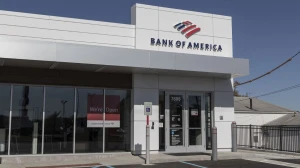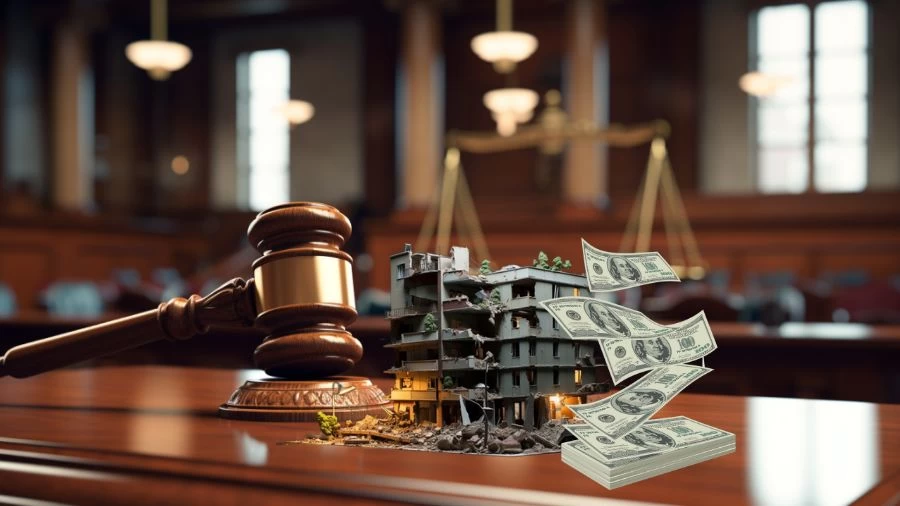
How Much Does It Cost to File Bankruptcy?
The cost of filing bankruptcy varies depending on the type; Chapter 7 typically costs $338, while Chapter 13 requires a $313 fee, in addition to attorney fees, which can range from $750 to $4,500, and credit counseling fees ranging from $10 to $50.
Published Oct 31, 2023 | Updated Oct 31, 2023 | 📖 5 min read
How Much Does It Cost to File Bankruptcy?
Filing for bankruptcy has its costs. It's a way to deal with serious debt problems, but it also means spending money. In the short term, you'll need to pay for the bankruptcy filing itself, which can be around $300 to $340, and you may also need to hire a lawyer, which can cost anywhere from $750 to $4,500 depending on how complicated your situation is.
However, it's crucial to remember that bankruptcy has long-term financial consequences too. It can affect your credit and your ability to borrow money in the future, so it's necessary to consider both the immediate and lasting financial impacts before deciding to go through with it.
Immediate Financial Aspects of Bankruptcy
When you file for bankruptcy, there are several expenses to consider. The federal government sets the filing fees, which are $338 if you're filing for Chapter 7 bankruptcy and $313 for Chapter 13. Additionally, you'll need to hire an attorney, and their fees can vary widely, usually ranging from $750 to $4,500, depending on your specific case and the type of bankruptcy.
In some places, there are rules that limit how much attorneys can charge for bankruptcy cases, and they must follow specific guidelines outlined by the jurisdiction. The U.S. Department of Justice can also randomly review these fee agreements to ensure fairness.
Lastly, the government requires bankruptcy filers to undergo credit counseling, which incurs additional costs ranging from $10 to $50. It's important to consider all these expenses when thinking about bankruptcy.
What are the Long-Term Costs of Bankruptcy?
The long-term effects of bankruptcy can be even more significant than the initial costs. When you file for bankruptcy, it's important to consider how it can affect your finances over time.
Chapter 7 bankruptcy can stay on your credit report for up to 10 years, while Chapter 13 may remain for up to seven years. Right after filing, you'll see an immediate impact on your credit score, and the higher your score was initially, the more significant the impact will be.
Having bankruptcy on your credit report can make it challenging to qualify for loans and credit cards, and if you do qualify, you might face high interest rates. Your credit score also matters beyond borrowing money; it can influence your ability to rent an apartment, get insurance, or even secure certain jobs.
Although bankruptcy's impact on your credit score will persist as long as it's on your credit report, it will gradually lessen over time.
MarketsHost is a versatile website offering valuable resources for all things Banking, from Credit Cards to Loans. Explore our wide range of financial information and services today.
What is an Alternative to Bankruptcy?
If you're looking for an alternative to bankruptcy, consider credit counseling. Credit counseling is a service provided by nonprofit organizations to help individuals who are facing financial difficulties, especially when dealing with debt. Credit counselors work with clients to assess their financial situation, create a budget, and develop a plan to manage and reduce their debt.
They can also provide financial education and advice on how to improve money management skills. The goal of credit counseling is to assist individuals in regaining control of their finances and working toward a more stable and debt-free future.
What are the Types of Bankruptcy?
The two primary types of bankruptcy that individuals may consider when faced with overwhelming debt are Chapter 7 and Chapter 13. These bankruptcy options differ in their approach to debt relief and have distinct eligibility requirements. There are two main types of bankruptcy that individuals can file for, and the choice typically depends on your specific circumstances:
Chapter 7
This type of bankruptcy is the one with the least financial impact on the person filing for it. It is an option when you are unable to make your regular debt payments. When you file for Chapter 7, your assets are used to pay your creditors, although usually only a portion of what you owe.
Some assets, such as retirement accounts, government benefits, wages earned after filing, and certain property, are exempt from liquidation. To qualify for Chapter 7, your income must meet specific criteria, and there are also restrictions if you've had a recent bankruptcy filing.
Chapter 13
If you don't meet the requirements for Chapter 7, you may consider Chapter 13, often called a "wage earner's plan." Instead of liquidating assets, Chapter 13 helps you create a plan to pay off your debts, either partially or in full, over a period of three to five years. The payment duration depends on your income, with lower incomes usually requiring a three-year plan and higher incomes a five-year plan. It involves living within a court-ordered budget and making regular payments to cover your debts.
The choice between Chapter 7 and Chapter 13 bankruptcy depends on your financial situation and eligibility. Each type has its own advantages and disadvantages, so it's important to consult with a bankruptcy attorney to determine which option is best for your specific circumstances.
How Much Does It Cost to File Bankruptcy - FAQs
1. What are the filing fees for Chapter 7 bankruptcy?
Filing fees for Chapter 7 bankruptcy typically amount to $338.
2. How much does it cost to file for Chapter 13 bankruptcy?
Filing for Chapter 13 bankruptcy usually requires a $313 petition fee.
3. What are the attorney fees for bankruptcy?
Attorney fees for bankruptcy can vary, ranging from $750 to $4,500, depending on the complexity of your case.
4. Are there restrictions on attorney fees in bankruptcy cases?
Some jurisdictions limit the amount attorneys can charge for bankruptcy proceedings to ensure fairness.
5. Is there a cost for credit counseling in bankruptcy?
Yes, you may incur fees ranging from $10 to $50 for credit counseling when filing for bankruptcy.




